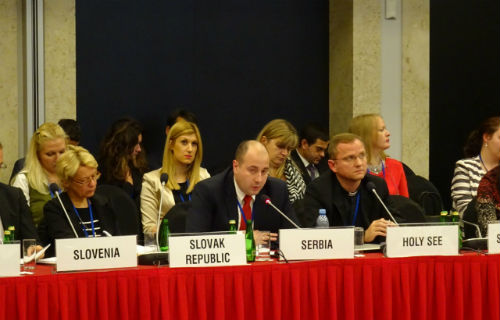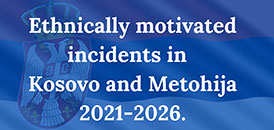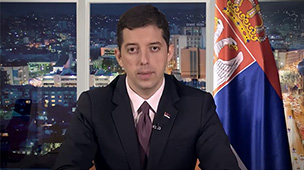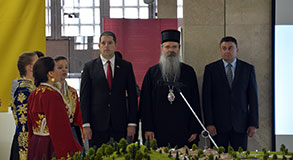Kozarev speaking in Warsaw on model ensuring sustainable return of displaced persons
Deputy Director of the Office for Kosovo and Metohija, Dušan Kozarev, stated today that new approaches are needed in order to ensure sustainable return of the internally displaced persons to Kosovo and Metohija, and Serbia has therefore proposed a comprehensive model which entails both the return to a safe environment and also guarantees access to health care and social services, education and jobs.

Speaking at the 2015 OSCE Human Dimension Implementation Meeting held in Warsaw, Kozarev said that the concept behind the returnee settlement "Sun Valley", offers precisely such a comprehensive solution which will ensure that 300 families gain the opportunity to return to the northern Kosovo and remain there.
According to Kozarev, besides houses and basic infrastructure, the "Sun Valley" will also include a kindergarten, school, health center, post office, church and all the conditions for the development of entrepreneurship. Such an economically viable community will interact with the wider environment and contribute to the overall economic development of Kosovo and Metohija.
"This will be a multi-ethnic project, implemented transparently and result-oriented. It is not too late to successfully solve the problem of the internally displaced through projects such as this one, provided that we can find a way to jointly do so. Its successful implementation will requires cooperation with both the international community and the stakeholders on the ground," Kozarev said.
This model of return can be universal and implemented in other regions where the OSCE is faced with the necessity of resolving the issue of the internally displaced persons.
Kozarev specified that, according to UNHCR, there are some 230,000 displaced persons from Kosovo and Metohija across this region of the Balkans, whereof by far the largest number are in Serbia - currently 204,049 people.
Returns achieved so far are below 5% of the total number of the displaced population, and Kozarev listed a whole series of problems that have contributed to such law numbers, such as destroyed property and lack of damage compensation, no efficient mechanisms for the restitution of usurped property, legalization of property illegally usurped through fraudulant transactions conducted in courts of law.
Other problem also include difficult access to personal documents, high administrative fees, inefficient court system which is unable to conduct proceedings in Serbian language, and poor security situation on the ground.





